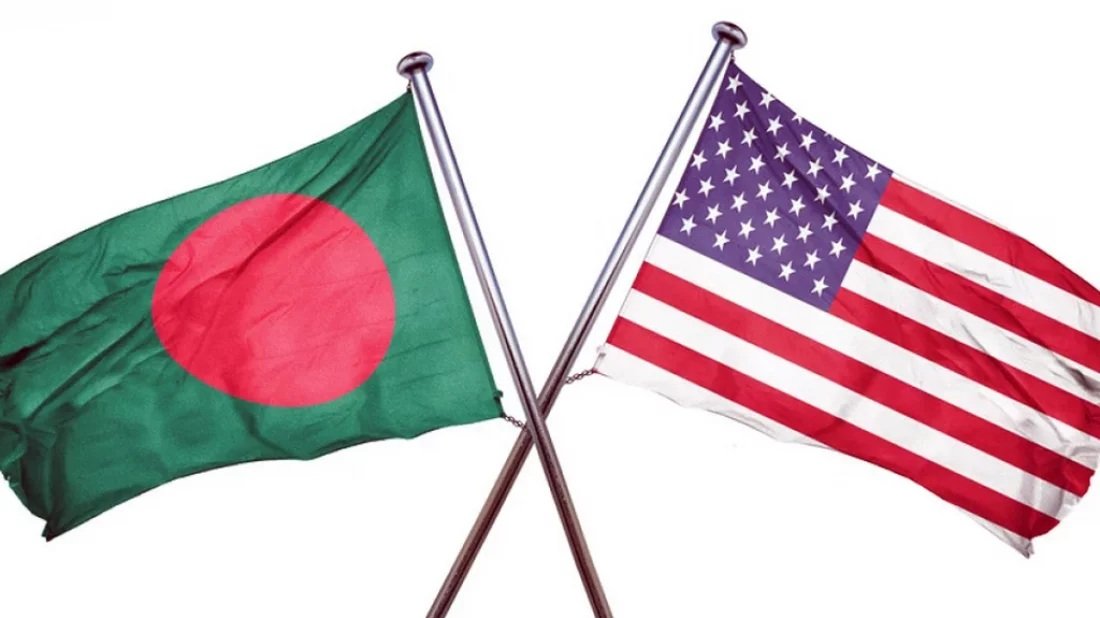Earlier this month, US President Donald Trump unveiled a range of new tariffs targeting several countries, including Bangladesh. However, following appeals from the affected nations, the United States decided to temporarily suspend the tariffs—except those on China—for a period of 90 days to allow room for negotiations.
Since then, Dhaka and Washington have engaged in multiple rounds of dialogue to address concerns stemming from the policy changes. On April 23, Lutfey Siddiqi, Special Envoy for International Affairs to the Chief Adviser, held talks with US officials. During these discussions, the United States requested that Bangladesh submit specific proposals aimed at reducing the current trade imbalance. Further meetings are expected once the proposals are formally presented.
A senior official involved in the negotiations said, "We are determined to complete the discussions within the 90-day timeframe. Every necessary step is being taken to move the process forward."
Referring to the progress made by other countries, the official noted that India is close to finalizing a memorandum of understanding, South Korea has already submitted its proposals, and Japan has made considerable headway in its negotiations.
Bangladesh’s Trade Proposal
Currently, bilateral trade between Bangladesh and the United States is valued at approximately $8.5 billion. Bangladesh exports goods worth over $6 billion to the US, while US exports to Bangladesh total around $2.2 billion. The United States has indicated a strong interest in narrowing this significant trade gap, which presently favors Bangladesh.
Highlighting the government's approach, an official explained, "While the government provides the framework for trade, the private sector handles the actual imports and exports. Therefore, private sector engagement is crucial."
Bangladesh’s proposals will primarily focus on three areas: removing non-tariff barriers, encouraging greater imports from the US through private sector participation, and reducing or eliminating tariffs on American products. Additionally, issues related to labor sector reforms, intellectual property rights, and the digital economy are expected to be referenced in the proposals.
Path Ahead for Negotiations
Discussions between the two sides will resume once Bangladesh formally submits its proposals. A US official reportedly stated, "We understand that the trade deficit cannot be closed overnight. However, we expect Bangladesh to take meaningful steps to reduce the gap and deliver measurable outcomes that benefit US interests."
Bangladesh has also raised another important point during the negotiations: while the focus has been largely on goods, Bangladesh makes significant payments to the United States for services, a factor that should also be considered when assessing the trade balance.
Government’s Immediate Actions
In response to the tariff announcement, Bangladesh’s interim government moved swiftly. Chief Adviser Muhammad Yunus sent a letter to the US President requesting a temporary suspension of the additional tariffs. Commerce Adviser Sheikh Bashiruddin also engaged directly with the Office of the United States Trade Representative (USTR) to advocate for a review of the new measures.
As part of its diplomatic outreach, Bangladesh hosted two Deputy Assistant Secretaries from the US State Department, who met with the Chief Adviser, the Foreign Affairs Adviser, the Special Envoy, and the Foreign Secretary to assess Bangladesh’s response to the new tariff regime.
Meanwhile, in Washington, Lutfey Siddiqi met with Brendan Lynch, Assistant Secretary at the USTR, to present Bangladesh’s plan for addressing the trade imbalance. Bangladesh expressed its intention to increase imports of American goods and to lower existing tariffs as part of its broader strategy to rebalance bilateral trade relations.








